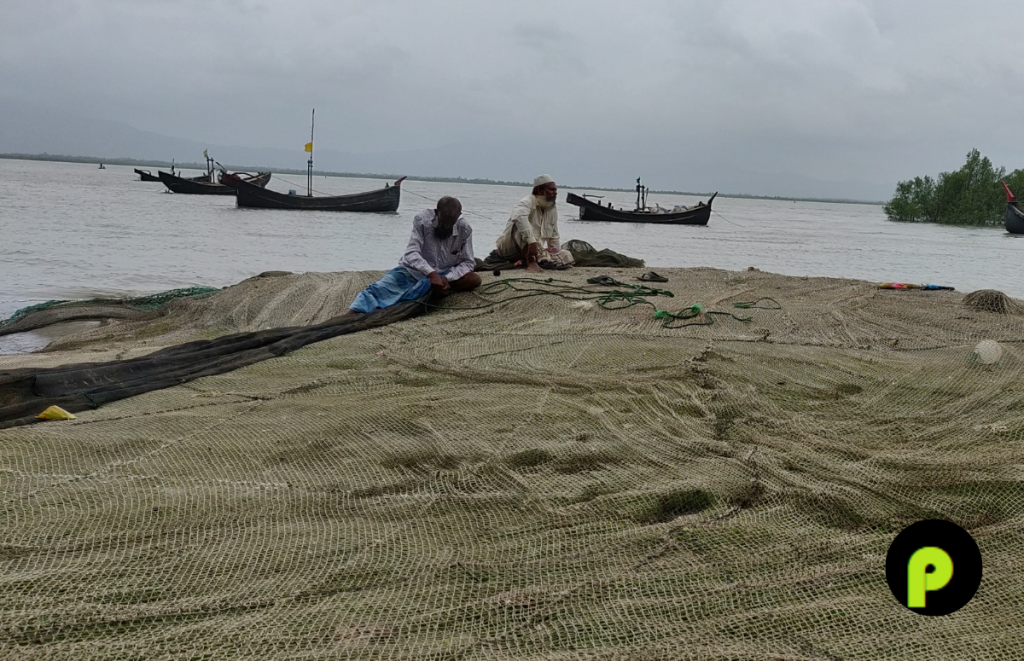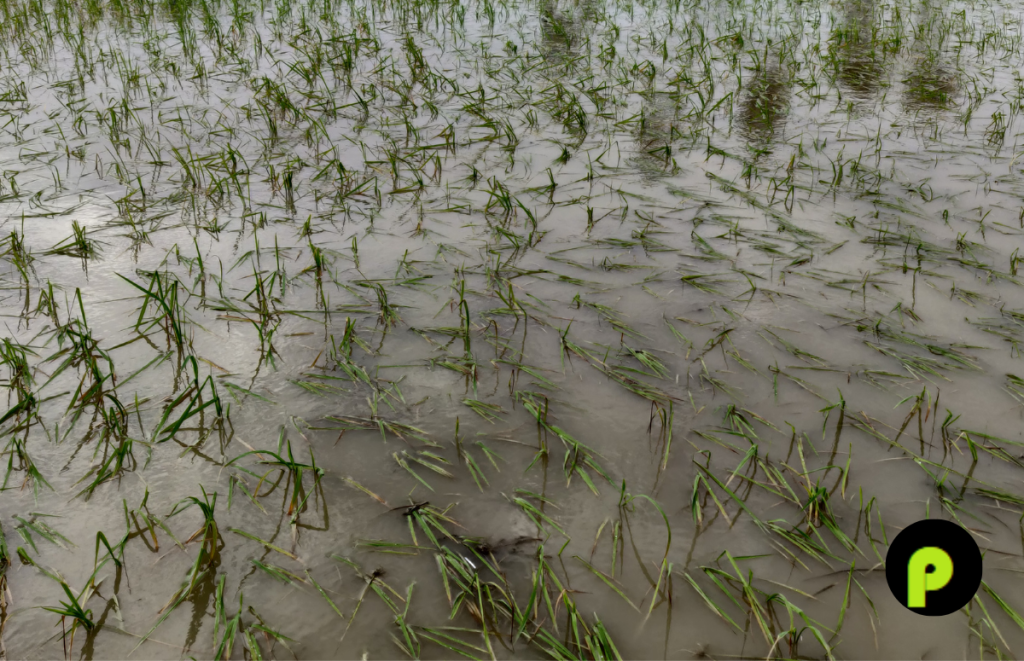Mizanur Rahman
“Temperatures have risen at a rate of 0.0201 degrees Celsius per year in Teknaf, where the national temperature has risen by 0.0228 degrees Celsius over the last 30 years. Most importantly, the wind speed of national level, the average wind speed is increasing by 0.0279 m/s every year, butt in micro-level climate analysis, Teknaf station’s windspeed pattern also showed a drastically increasing trend, even more than the national level, with a rate of 0.0613 m/s. “.
Center for People and Environ organized a workshop on climate vulnerability and resilient livelihoods in Teknaf. The workshop was organized with the support of the Bangladesh Red Crescent Society (BDRCS) and British Red Cross (BRC) on 23 August 2023 at the Upazila Parishad Conference Hall, Teknaf. In the workshop, the Director of the Center for People and Environ said, that when we compare the national-level data for overall Bangladesh to narrow it down to Upazilas as a micro-level climate scenario, it might be clear how drastically the local climatic scenario is changing every year. Nationally, the rainfall is decreasing by 3.6365 mm/year, and Teknaf station data shows that every year, the decreasing rainfall rate is 23.09 mm/year. He also added that the populations in Cox’s Bazar are vulnerable to a wide range of natural hazards and frequently experience extreme weather events because of their geographic position, climate, and topography. It is susceptible to cyclones, storm surges, medium-to-high soil salinity, sea-level rise, monsoons, and flash floods because of its funnel-shaped southern coast and its status as a riparian country. Saline water intrusion limited agricultural production and decreased the number of viable livelihood options. A study was carried out as part of the Vulnerable to Resilience (V2R) initiative by the Center for People and the Environ (CPE) with assistance from the Bangladesh Red Crescent Society (BDRCS) and British Red Cross (BRC) to identify gaps in three unions of Teknaf Upazila peoples’ accessible livelihood options. The Center for People and the Environ (CPE) organized a sharing and validation workshop on “Climate Risk Assessment and Identification of Climate-smart livelihood options in Tekanf” in the Upazila conference room of Teknaf. Md. Arfanul Haque Chowdhury, Additional Commissioner (Land), attended the session as the chief guest.
The study’s findings were delivered by Muhammad Abdur Rahaman, the study’s team leader and Director of the Center for People and the Environ (CPE). According to Mr. Rahaman, who presented the study’s findings, the study sorted the vulnerable community’s needs for resilient interventions in the context of current and projected climate change consequences for the poor, women, and women in vulnerable circumstances. The usefulness of various structural and non-structural strategies to increase community resilience to disaster and climate change has been documented in this study, which focuses on three specific unions.
The results of the study indicated that fishermen who belong to unions are among the most vulnerable occupational categories. A fisherman who attended the validation course said, “We have been prohibited from fishing in the Naf River for the last five years. I want to ask the authority to permit us to fish in the Naf River through this workshop.

The workshop covered a variety of topics about the effects of climate change on various livelihoods, including those of the most vulnerable people in the study area: fishermen, farmers, and day laborers. The floor was open for discussion and a question-and-answer session following the presentation session.
“Appropriate sluice gate maintenance is necessary to keep out salt water from the sea. The irrigation system at Teknaf’s 27 Jhiri canal needed to be re-excavated.”
According to Shahidul Alam, SAAO, DoA, and Teknaf, appropriate sluice gate maintenance is necessary to keep out salt water from the sea. He added that the irrigation system at Teknaf’s 27 Jhiri canal needed to be re-excavated. For sustainable agriculture and livestock, Md. Monayem Hossain, project coordinator at RIC, suggested that we should promote indigenous technologies and seeds. The Department of Livestock Officer Md. Nurul Alam advised that all livestock and poultry must be safeguarded through a vaccination program.
Local farmers, fishermen, government officials, and representatives from non-governmental organizations were among those present at the session. The objective of this conference was to present and assess the findings of an in-depth assessment of the climate risk that took place over the previous year while also giving participants an environment to share their experiences and thoughts.
The presentation of the climate risk assessment report, which identified the most urgent challenges faced by Teknaf, was the workshop’s high point. These included the impact of rising salt on agriculture, the susceptibility of fishing communities to severe weather, and the probable eviction of coastal people as a result of sea level rise. To increase the resilience of local populations, the research additionally highlighted the need to establish climate-smart livelihood options.

Participants of the validation workshop came to an understanding of the significance of taking action right away as it was wrapping up. The inaugural speech was delivered by Abonindra Karmaker, BDRCS. He briefly explains the V2R project. Md. Mizanur Rahman, Forest Ranger, BFD, Teknaf, Sayed Hossain Mamun, CA, Upazila Parishad, Teknaf, Shahidul Alam, SUFO, DoF, Teknaf, and some other related persons also provided their ideas in the validation workshop.






